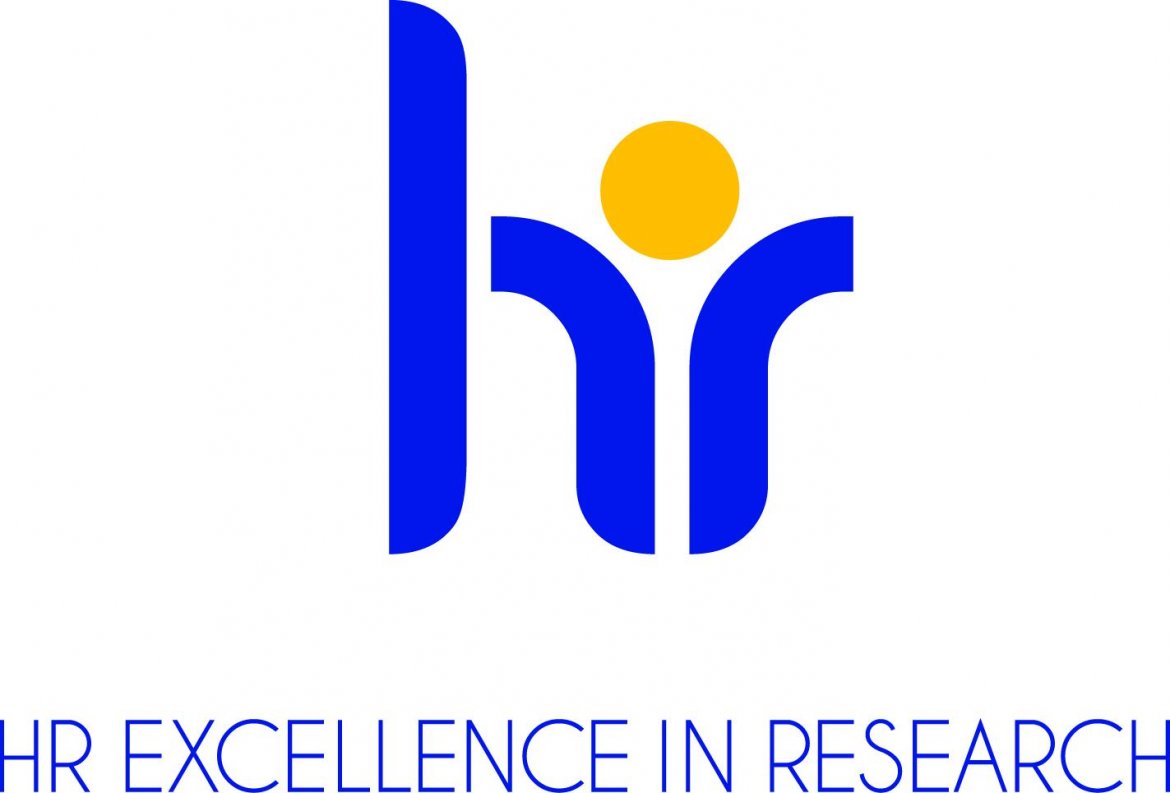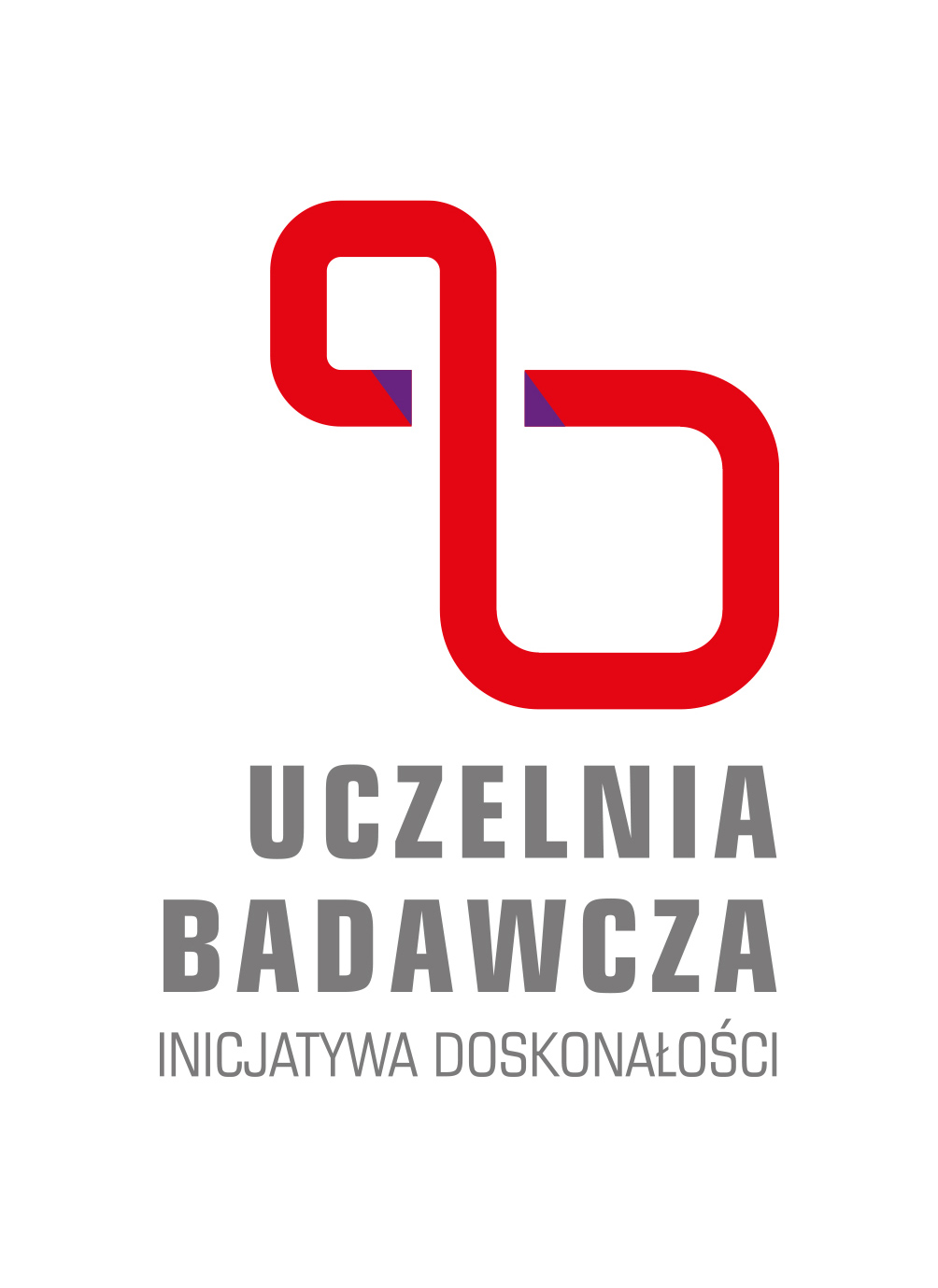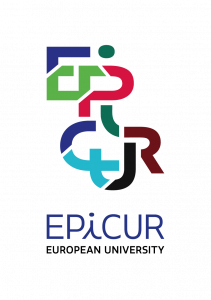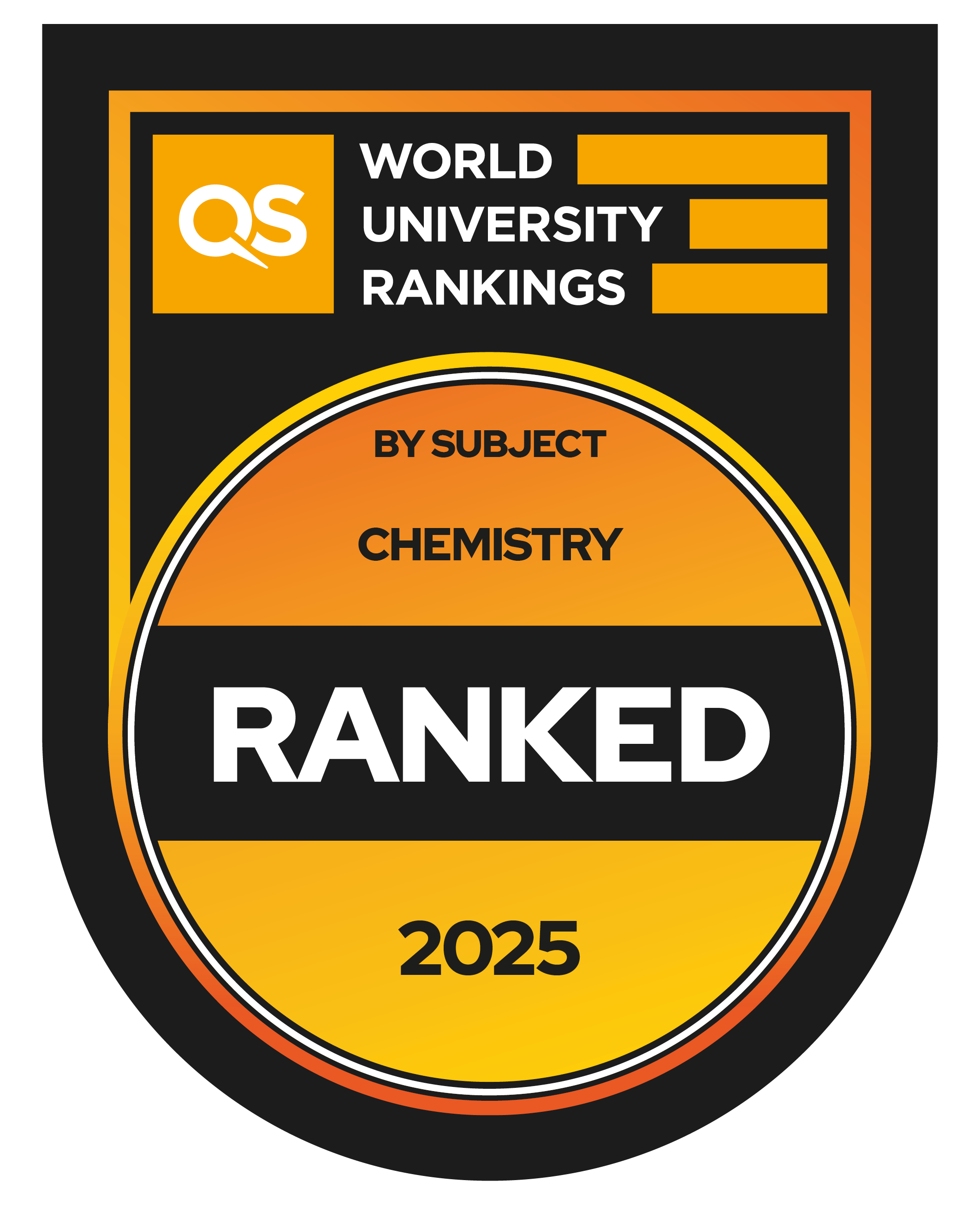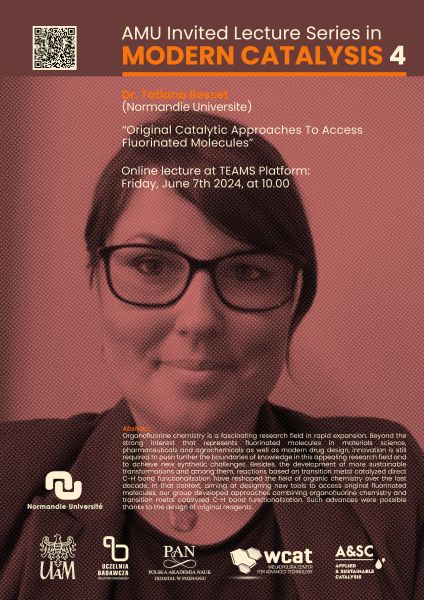W imieniu Organizatorów serdecznie zapraszamy na kolejny wykład czwartej serii wykładów AMU Invited Lecture Series in MODERN CATALYSIS 4. Tym razem wirtualnie, na platformie TEAMS będziemy gościć dr Tatianę Besset z Normandie Universite we Francji (www.bessetgroup.cnrs.fr).
Wykład pt. „Original Catalytic Approaches To Access Fluorinated Molecules” odbędzie się w piątek 07 czerwca 2024 roku, o godz. 10.00 na platformie TEAMS.
Link do spotkania: MS Teams
Dr Tatiana Besset jest laureatką grantu ERC Starting. Jej badania dotyczą chemii metaloorganicznej, chemii związków fluoro, katalizy, aktywacji wiązań C-H.
Tatiana Besset obtained her PhD in chemistry (2009) at Grenoble University with Dr. Greene. She then moved to the WWU Münster as a postdoctoral fellow in the group of Prof. Glorius. In 2011, she joined the group of Prof. Reek at Amsterdam University, as an industrial postdoctoral fellow (Eastman company). From 2012-2021, she was a CNRS Associate Researcher (habilitation in 2018) in the “Fluorinated Biomolecules Synthesis” group at the laboratory COBRA (UMR 6014, Rouen, France) and she was promoted Director of Research CNRS in 2022. Her research career has been recognized with different awards and honors such as ERC Starting Grant (2017), Bronze medal of the CNRS (Young Investigator Award 2018), Jean Pierre Sauvage 2018 Prize awarded by the Division of Organic Chemistry (DCO) of “Société Chimique de France” (SCF) and the Thieme Chemistry Journals Award (2020). In 2022, she was elected as Chemistry Europe Fellow Class 2020/21 and early 2023, she received the 2023 RSC Fluorine Prize. Her research involves the design of new transformations involving transition-metal catalysis (C-H bond activation) and the development of new strategies in organofluorine chemistry. She is an author of more than 90 papers published in high impact journals (h-index = 34).
Wykład realizowany jest przez Laboratorium Stosowanej i Zrównoważonej Katalizy Centrum Zaawansowanych Technologii UAM ze wsparciem Inicjatywy Doskonałości – Uczelnia Badawcza. Dodatkowo patronat nad wykładem objęła Komisja Nauk Chemicznych PAN Oddział w Poznaniu
